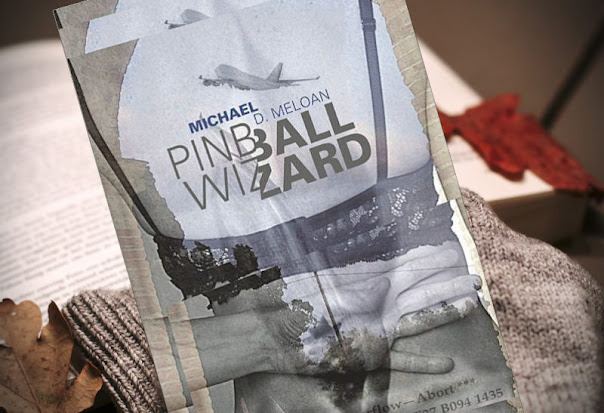Purchase
a copy of My University of the World
on Amazon or Bookshop.org. You can also add this to your GoodReads reading list.
My University of the World
This memoir takes the reader on
a many-faceted ride through my long career. In the opening chapter in 1970, in
India, the reader joins me as a young cinematographer, learning my new craft
“on the hoof.” I traveled alone on a shoestring budget on rickety old trains
and buses while documenting the lives of Canadian volunteers. That job lasted
two years and, to boot, I married Elizabeth, an American woman I met in Japan,
in a humorous ceremony in Lusaka, Zambia, after our honeymoon at
Victoria Falls. The adventures continued when we settled down in Ottawa,
Canada, to have children. There, I was hired by the International Development
Research Centre to roam the developing world and make about 30 films on their
many projects in education, rural development, agriculture, post-harvest
technology, fisheries and aquaculture, health care, water and sanitation—the
list goes on. Some of my creations won awards.
After 15 years of traveling,
editing, and producing, I was granted a sabbatical to do a Master of Science in
Communication at Florida State University (FSU). These new credentials led me
and my family to Bangladesh, in 1990, where I became the leader of a
communication team for UNICEF—the United Nations Children’s Fund. (Lucky for
me, Elizabeth is an artist with a portable career, and her growing talent is
featured in my memoir.) In Bangladesh, I applied all I had learned in my
earlier years and at FSU. The highlight of the job came when I forged a
regional team of researchers, artists, and program officers to create an
entertaining TV/video and comic book series on Meena, an empowered animated
girl cartoon figure, who cleverly negotiates with
her peers, family, and community for gender equality in education, health care,
and many other child rights. By then, I knew that stories, rather than simple
messages, would be discussed in families and communities—a better chance to
change behavior and social norms.
The success in Bangladesh led me
to become the regional communication officer for UNICEF in Eastern and Southern
Africa, where I led the agency’s early attempts to contain the growing HIV/AIDS
epidemic and launched Sara, the adolescent girl—entertaining
animated film and comic book stories of young girls fighting for their rights.
In 2001, I joined Johns Hopkins University (JHU) in Baltimore, USA, to do
similar work, frequently traveling to Asia, and after three years I was asked
to lead a JHU project in Moscow, Russia, at the time Putin was tightening reins
on society. Except for a brief epilogue, my memoir ends with my final post in
Washington, D.C. (2009-2012) as director of a large global communication
project with millions of dollars to program and 140 staff members to manage—a
great challenge, employing all I had learned throughout my career.
Although I started as a “one-man
film crew,” as described in my book, I was influenced and mentored by many of
the multi-national people I met and worked with through the years. These
experiences led me to become a leader of creative teams; an author and
co-author of books, articles, and manuals on development communication; a
facilitator and trainer of hundreds of people; and a mentor of others. I
learned how to negotiate around roadblocks and apply principles such as gender
and racial equity, and skills such as emotional intelligence. My career
entailed so many changes and chances to grow and learn that I decided to title
this memoir “My University of the World.”
About the Author
Neill McKee is a
creative nonfiction writer based in Albuquerque, New Mexico. My University of the World: Memoir of an
International Film & Media Maker is a stand-alone sequel to his first
travel memoir, Finding Myself in Borneo:
Sojourns in Sabah, which has won three awards. McKee holds a bachelor’s
degree from the University of Calgary and a master’s degree in communication
from Florida State University. He worked internationally for 45 years, becoming
an expert in the field of communication for behavior and social change. He
directed and produced a number of award-winning documentary films/videos,
popular multimedia initiatives, and has written numerous articles and three
books in the field of development communication. During his international
career, McKee was employed by Canadian University Service Overseas (now CUSO
International); the International Development Research Centre (IDRC), Canada;
UNICEF in Asia and Africa; Johns Hopkins University, Baltimore, Maryland; the
Academy for Educational Development and FHI 360, Washington, D.C. He worked and
lived in Malaysia, Bangladesh, Kenya, Uganda, and Russia for a total of 18
years and traveled to over 80 countries on short-term assignments. In 2015, he
settled in New Mexico, where he uses his varied experiences, memories, and
imagination in creative writing.
Find Neill online:
Author’s website: https://www.neillmckeeauthor.com/my-university-of-the-world
Author's digital
library: https://www.neillmckeevideos.com/
(These are most of the film and media projects covered in the memoir – produced
by the author from 1970 to 2012.)
LinkedIn: www.linkedin.com/in/neill-mckee-b9971b65/
Facebook: www.facebook.com/McKeeNeill/























